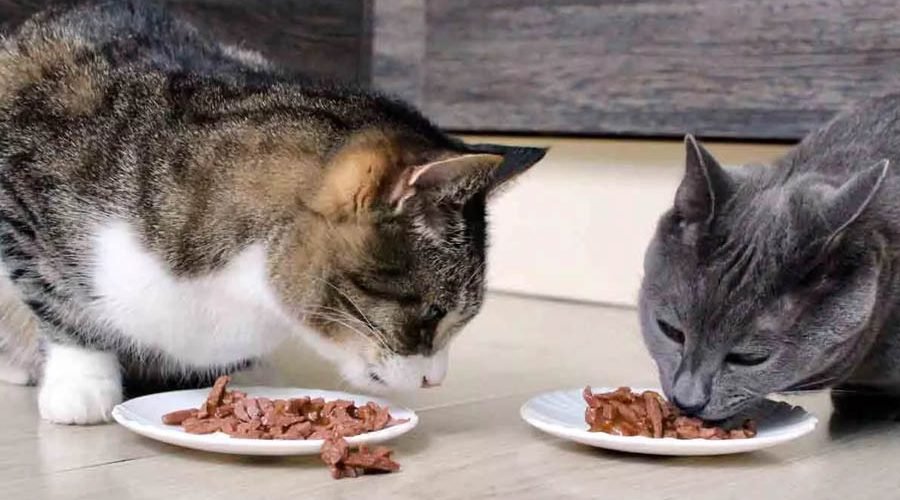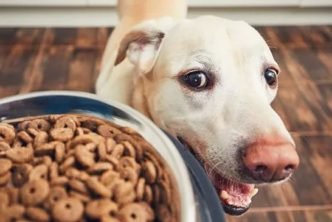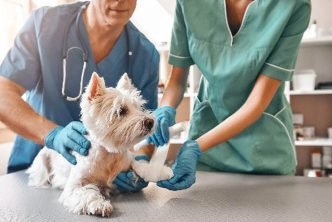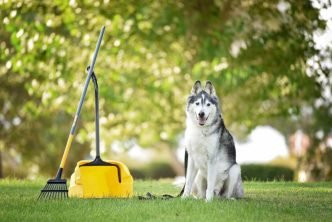Similar to humans, cats can experience constipation from improper foods or having a lack of moisture in their diet or simply from certain health implications.
To alleviate the problem, knowing the best food for cats with constipation is essential to help them through the struggle.
These types of food all help regulate the movement of the intestines and add bulk to the stools, making it easier for them to pass through waste. Plenty of moisture also helps keep the stools hydrated and soft.
Read on to find out how you can help your feline friend through this hard time.
Table of Contents
Understanding Constipation
Cats with constipation experience difficulty or infrequent passing stools (going to the toilet). This can be caused by a few different reasons, including dehydration, lack of physical activity, changes in diet, or specific medical conditions like megacolon or IBS.
It’s easy to notice a cat having constipation problems. Symptoms include straining to defecate, passing small, hard waste, and lacking bowel movements. They may also display signs of distress, such as crying, hiding, avoiding the litter box and more.
To alleviate the problem and ensure it doesn’t happen again, you must ensure they have a healthy diet high in fibre and moisture.
To name a few, let’s get into the best food for cats with constipation.
Canned Pumpkin
Canned pumpkin is a great food option for cats with constipation as it is high in fibre, making it easier for them to pass through waste. Pumpkin is also a natural source of insoluble and soluble fibres, which helps to keep their stools hydrated and soft.
The high water content in canned pumpkins helps soften their waste and makes it easier to pass.
If you are monitoring their weight, it is also a low-calorie and fat food, so it can safely be given to a cat without worrying about too much weight gain. It is also rich in many nutrients like beta-carotene, multivitamins, potassium and more, making it great for muscle growth and overall health.
Canned pumpkin makes a great choice for many situations, and it could be mixed into their usual food or given as a treat. It is a highly flexible and tasty food for them.
Beet Pulp, Psyllium, and Bran
Beet pulp, psyllium, and bran are all sources of dietary fibre that can be highly beneficial for cats with constipation.
Beet pulp is a byproduct of sugar beet processing, and it is rich in insoluble and soluble fibres, which helps with the cat’s stooling. It is also a great energy source and minerals like potassium, calcium, and magnesium.
Psyllium is a type of soluble fibre that comes from the seeds of the Plantago ovata plant. This fibre works by absorbing water in the intestines and forms a gel-like substance that helps the cat during passing waste.
Bran is the outer layer of cereal grains, such as wheat and oats, removed during the refining process. It is high in fibre and is highly accessible. It’s rich in insoluble fibre, which also helps with stooling. It’s also a great source of essential vitamins and minerals.
Incorporating these dietary fibres into your cat’s diet is bound to help in aid of constipation as well as other health benefits.
Chicken
Chicken can be a good source of protein for cats which is also important during constipation; however, it must be included in a wet meal instead of a dry one.
Chicken included in cans or packets is often a good choice as it will help deliver that high meat content whilst not being too dry, ensuring your feline friend will get the food they need.
Cooked chicken can be combined with the above recommendations to get the best of both worlds. Adding water to their dish will also help give them that much-needed moisture.
The combination of moisture, fibre and protein will help add bulk to their stools, making it easier to pass.
In Summary
There are many choices of food out there to help a cat suffering from constipation, and this guide scratches the surface of some of the best ones to choose from. Ultimately, food with high fibre volume and moisture content should be good enough to help them pass easier.
Changing the diet might not work for every cat. If there is clear evidence of distress and you are concerned, you should report straight to your veterinarian for direct support.
It is better to be safe than sorry and avoid any more serious health problems.





